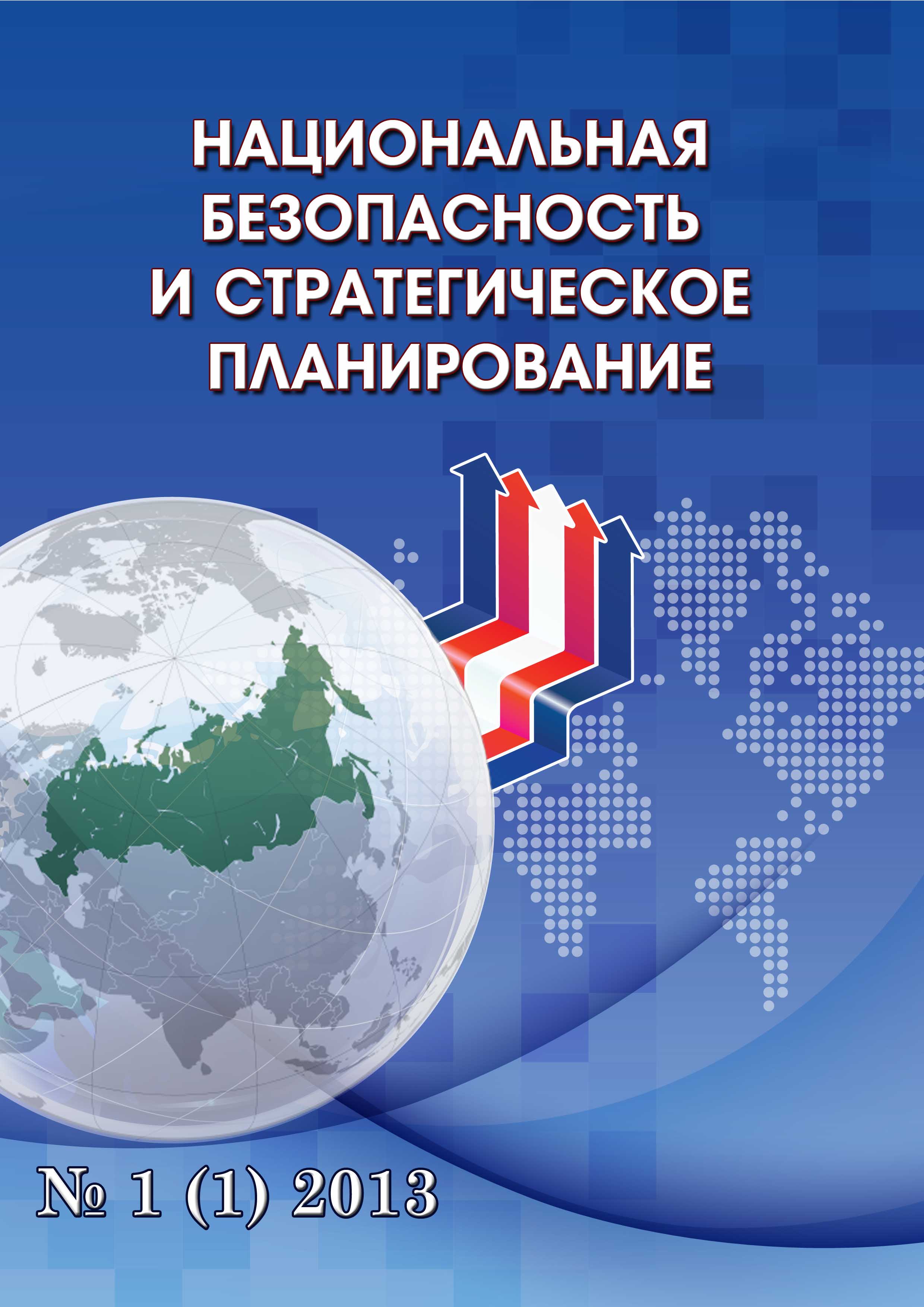Kaliningrad, Kalinigrad, Russian Federation
Today, political manipulation of the masses, mass political consciousness and mass political behavior is not only a common phenomenon, but has also become everyday political practice. Studying this is an urgent theoretical and practical task. This study is aimed at systematizing various theories, methods, techniques and practices of influencing our psyche, using the features of our anthropic development, which we understand as means of manipulation or as objective control of the subject’s consciousness. The results of the study are presented in a thesis-presentation format to counteract external control and reflection. Although the presented results do not claim to be absolutely complete, they contain a sufficient set of common techniques used in marketing, propaganda, information, cognitive and mental wars. The first part of the study is devoted to cognition and techniques for manipulating cognition. The second part, building on the first, contains a description of psi effects used by manipulative attackers, which are associated with our cognitive characteristics. The third part is devoted to methods of manipulation in the media space. The fourth section of the study examines meanings, semantic or mental wars and, based on this epistemology, manipulation of socio-political processes or political wars.
cognitive warfare, mental warfare, semantic warfare, manipulation of consciousness
1. Scruton R. Fools, scammers and arsonists: Thinkers of the New Left. – M.: Publishing house. HSE House, 2021. – P. 309. – ISBN 978-5-7598-1788-8. – DOIhttps://doi.org/10.17323/978-5-7598-1788-8. – EDN WTUERB.
2. Lippman U. Public opinion. – M.: Institute of the Public Opinion Foundation, 2004.
3. Makarov E.B. Sociology of mental war // National security and strategic planning. – 2023. – No. 3(43). – P. 5-18. – DOIhttps://doi.org/10.37468/2307-1400-2024-2023-3-5-18. – EDN NJWTHB.
4. Thaler R., Sunstein K. Nudge. Architecture of choice. How to improve our decisions about health, wealth and happiness. – M.: Mann, Ivanov and Ferber, 2017.
5. Lepsky V.E. Methodological and philosophical analysis of the development of management issues. – M.: Kogito-Center, 2019. – 340 p. – ISBN 978-5-89353-547-1. – EDN RRKGAO.
6. Cognitive Warfare: The Future of Cognitive Dominance (NATO Symposium, march 2022. [Electronic resource]. – Access mode: https://www.innovationhub-act.org/sites/default/files/2022-03/Cognitive Warfare Symposium – ENSC – March 2022 Publication.pdf (accessed 11/12/2023).
7. Poznyak K.V. Classification of cognitive distortions // Law. Economy. Psychology. – 2023. – No. 3(31). – pp. 68-75. – EDN XCGBTA.
8. Cognitive dissonance // BRE: scientific and educational portal. [Electronic resource]. – Access mode: https://bigenc.ru/c/kognitivnyi-dissonans-7f5bee/?v=3343873 (access date 11/14/2023).
9. The Psychology of (Dis)information: A Primer on Key Psychological Mechanisms. [Electronic resource]. – Access mode: https://www.cna.org/CNA_files/PDF/The Psychology-of-(Dis)information-A-Primer-on-Key-Psychological-Mechanisms.pdf (accessed 11/14/2023).
10. Savelyev S.V. Morphology of consciousness: In 2 vols. – M.: Vedi, 2021. – 208 p.
11. Damasio A. This is how “I” begins. The brain and the emergence of consciousness. – M.: Career Press, 2018. – 384 p.
12. Luk A.N. Emotions and personality. – M.: Knowledge, 1982. – 176 p.
13. Artificial intelligence: an interdisciplinary approach / Ed. DI. Dubrovsky and V.A. Lektorsky - M.: IIntell, 2006. - 448 p.
14. Afanasyev V.G. Social information and social management. – M.: Lenand, 2023. – 408 p.
15. Castells M. The power of communication: textbook. allowance. – M.: Publishing House of the Higher School of Economics, 2020. – 591 p.
16. Bernays E. Propaganda. – St. Petersburg: Peter, 2022. – 224 p.
17. Manoilo A.V. “Kyiv in three days” and “Hirsch’s new sincerity” as an example of “expectation management” in information warfare operations // Russian Social and Humanitarian Journal. – 2023. – No. 3. – DOIhttps://doi.org/10.18384/2224-0209-2023-2-1317. – EDN YPXETD.
18. Nezhdanov I.Yu. Information warfare technologies on the Internet. [Electronic resource]. – Access mode: https://bash.rosmu.ru/activity/attach/events/1283/01.pdf
19. Kara-Murza S.G. Manipulation of consciousness. – M.: Academic Avenue, 2023. – 356.
20. Dubrovsky D.I. Consciousness, brain, artificial intelligence; Institute of Philosophy RAS. – M.: Strategy-Center, 2007. – 272 p. – ISBN 978-5-9900934-1-6. – EDN QXQSFL.
21. Bettelheim B. Enlightened heart. [Electronic resource]. – Access mode: https://opentextnn.ru/man/bettelgejm-bruno-prosveshhennoe-serdce/
22. Makarov E.B. Memology as a way of explicating Internet ideology: methodology for decomposing a political Internet meme // Communications. Media. Design. – 2021. – T. 6, No. 3. – P. 96-114. – EDN WVLLHY.
23. Smirnov S., Kara-Murza S.G. Manipulation of consciousness 2, – M.: Rodina, 2023. – 384 p.
24. Melnikov E. Paradoxes of media. Information. Journalism. Media. Society. Fundamentals of media literacy: popularly about the complex. – Vilnius: Artefactas, 2016. – 312 p.
25. Eco U. Name of the rose. – M.: Book Chamber, 1989.
26. Rudenko A.M. Fundamentals of rhetoric: textbook. – Rostov n/d.: Phoenix, 2016. – 381 p.
27. Thomas T.L. Reflexive management in Russia: theory and military applications // Reflexive processes and management. – 2002. – T. 2, No. 1. – P. 71-89.
28. Makarov E.B., Shchekoturov A.V. Hashtag as a predicate of the context of the communication flow in the communicative network space Twitter // Communications. Media. Design. – 2018. – T. 3, No. 3. – P. 81-95. – EDN DFQBQN.
29. Entman R., Knüpfer C. Framing conflicts in digital and transnational media environments // Media, war & conflict. – 2018. – V. 11. – No. 4. – P. 476-488. – DOI https://doi.org/10.1177/1750635218796381
30. Makarov E.B. Value and ethical aspects of the spatial organization of communities in the post-global era // Communications. Media. Design. – 2024. – T. 9, No. 1. – P. 129-150. – EDN RRENOY.
31. Luhmann N. The reality of mass media. – M.: Praxis, 2005. – 256 p.
32. Mikheev E.A., Nestik T.A. Disinformation in social networks: state and prospects of psychological research Social psychology and society. – 2018. – T. 9, No. 2. – P. 5-20. – DOIhttps://doi.org/10.17759/sps.2018090201. – EDN XTXYNN.
33. Grushin B.A. Mass consciousness: Experience of definition and research problems. – M.: Politizdat, 1987. – 368 p.
34. The Psychology of (Dis)information: A Primer on Key Psychological Mechanisms, 2021. [Electronic resource]. – Available at: https://www.cna.org/CNA_files/PDF/The Psychology-of-(Dis)information-A-Primer-on-Key-Psychological-Mechanisms.pdf. (accessed 11/14/2023).
35. Fogg B. J. A behavior model for persuasive design // Proceedings of the 4th international Conference on Persuasive Technology. – 2009. – V. 1-7. – DOI https://doi.org/10.1145/1541948.1541999
36. Makarov E.B. Mental and cognitive warfare: issues of definition, ends and means. [Electronic resource]. – Access mode: https://www.geopolitika.ru/article/mentalnaya-i-kognitivnaya-voyny-voprosy-opredeleniya-celi-i-sredstva (access date 11/14/2023).
37. Galaganova S.G., Manannikova D.A. Manipulative technologies in mobile applications // Human capital. – 2020. – No. 8(140). – P. 46-56. – DOIhttps://doi.org/10.25629/HC.2020.08.04
38. Shumkova V.A. Media effects // BRE: scientific and educational portal. [Electronic resource]. – Access mode: https://bigenc.ru/c/mediaeffekty-a4be2b (Access date: 10/13/2023).
39. Russian media system: Textbook for university students / Ed. E.L. Vartanova. – M.: Publishing house “Aspect Press”, 2015. – 384 p.
40. Jonathan Haidt – Social Media. [Electronic resource]. – Access mode: https://jonathanhaidt.com/social-media/ (Date of access: 03/13/2024).
41. Rathje S., Van Bavel J. J., Van Der Linden S. Out-group animosity drives engagement on social media // Proceedings of the National Academy of Sciences. – 2021. – V. 118. – No. 26. – P. e2024292118. – DOI https://www.pnas.org/doi/10.1073/pnas.2024292118.
42. Zuboff S. Surveillance capitalism and the challenge of collective action // New labor forum. – Sage CA: Los Angeles, CA: SAGE Publications, 2019. – V. 28. – No. 1. – P. 10-29. – DOI https://doi.org/10.1177/1095796018819461.
43. Keen J. Democracy and media decoding. – M.: HSE Publishing House, 2020. – 312 p.
44. Manoilo A.V. Information warfare and psychological operations. Guide to action. – M.: Hotline – Telecom, 2021. – 496.
45. Twenge J. M. et al. Specification curve analysis shows that social media use is linked to poor mental health, especially among girls // Acta psychologica. – 2022. – V. 224. – P. 103512. – DOI https://doi.org/10.1016/j.actpsy.2022.103512
46. Haidt J., Allen N. Scrutinizing the effects of digital technology on mental health // Nature. – 2020. – V. 578. – P. 226-227. – DOI https://doi.org/10.1038/d41586-020-00296-x
47. Haidt J. Why The Past 10 Years Of American Life Have Been Uniquely Stupid. [Electronic resource]. – Access mode: https://www.theatlantic.com/magazine/archive/2022/05/social-media-democracy-trust-babel/629369/ (access date 14.11.2023).
48. Haidt J. Yes, Social Media Really Is Undermining Democracy. [Electronic resource]. – Access mode: https://www.theatlantic.com/ideas/archive/2022/07/social-media-harm-facebook-meta-response/670975/ (access date 14.11.2023).
49. Klimova A.M., Kulikov S.P., Chmel K.Sh. The role of social media in the formation of regional environmental protest in Russia // Monitoring of public opinion: economic and social changes. – 2021. – No. 6(166). – P. 28-52. – DOIhttps://doi.org/10.14515/monitoring.2021.6.2024. – EDN LWUEVC.
50. Social Media Bots: Implications for Special Operations Forces. [Electronic resource]. – Access mode: https://www.cna.org/archive/CNA_Files/pdf/drm-2020-u-028199-final.pdf (access date 10/15/2023).
51. Finkelstein R. Tutorial: Military Memetics, 2011. [Electronic resource]. – Access mode: https://www.robotictechnologyinc.com/images/upload/file/Presentation%20Military%20Memetics%20Tutorial%2013%20Dec%2011.pdf (access date: 11/16/2023)
52. Defense Department to Investigate Military-run Fake Social Media Accounts. [Electronic resource]. – Access mode: https://nationalinterest.org/blog/techland-when-great-power-competition-meets-digital-world/defense-department-investigate (accessed 10/17/2023).
53. U.S. Special Forces Want To Use Deepfakes For Psy-Ops. [Electronic resource]. – Access mode: https://theintercept.com/2023/03/06/pentagon-socom-deepfake-propaganda/ (access date 11/17/2023).
54. Deep fake: who gets the liar's dividend. [Electronic resource]. – Access mode: https://topwar.ru/182814-glubinnaja-poddelka-kto-poluchaet-dividendy-lzheca.html (access date 10/17/2023).
55. Savin L. Arrows of a centaur: Cyberwar, American style. – M.: Oxygen, 2020. – 496 p.
56. Government Use of Deepfakes. [Electronic resource]. – Access mode: https://www.csis.org/analysis/government-use-deepfakes (access date 11/17/2023).
57. DARPA Semantic Forensics. [Electronic resource]. – Access mode: https://semanticforensics.com/ (access date 11/18/2023).
58. Zolyan S.T., Ilyin M.V., Teslya A.A., Tulchinsky G.L. Where and how meanings arise (round table materials) // Slovo.ru: Baltic accent. – 2024. – T. 15, No. 1. – P. 8-43. – DOIhttps://doi.org/10.5922/2225-5346-2024-1-1. – EDN ZVRWYP.
59. Churakov D.O. “Memory Wars” and local conflicts of our time. [Electronic resource]. – Access mode: https://histrf.ru/uploads/media/default/0001/63/f1d022eb716685381060ec8c394106ebd903ab2a.pdf (access date 11/12/2023).
60. Savin L.V. Ethnopsychology. Peoples and geopolitical thinking. – M.: Publishing House Oxygen, 2019. – 272 p.
61. Makarov E.B. Interests of Russia and the projection of the exclusivity of the Western expert community. [Electronic resource]. – Access mode: https://russtrat.ru/analytics/3-iyulya-2021-0010-4731 (access date 11/12/2023).
62. Sergeytsev T., Iskander V., Kulikov D. Russian history lessons. – St. Petersburg: Peter, 2023. – 320 p.
63. Khazin M. Memories of the future. Ideas of modern economics. – M.: Ripol classic, 2019. – 464 p.
64. Crouch K. Post-democracy. – M.: HSE Publishing House, 2023. – 192 p.
65. Kulikov D.E., Sergeytsev T., Mostovoy P. Ideology of Russian statehood. Continent of Russia. – St. Petersburg: Peter, 2020. – 688 p.
66. Speech by Sir Richard Moore, head of SIS, 19 July 2023. [Electronic resource]. – Access mode: https://www.gov.uk/government/speeches/speech-by-sir-richard-moore-head-of-sis-19-july-2023 (access date 11/12/2023).
67. J. Sherr. Hard diplomacy and soft coercion: Russian influence abroad. – K.: Zapovit, 2013. – 152 p.
68. Bezmenov Yu. Love letter to America. – Kyiv, 2016. – 56 p.
69. Sharp D. From dictatorship to democracy: Strategy and tactics of liberation / 2nd ed., rev. – M.: New publishing house, 2012. – 84 p.
70. Overvoltage in Russia: competition from advantageous positions. Chapter 5. Information and ideological measures. [Electronic resource]. – Access mode: https://www.researchgate.net/publication/348768690_Perenaprazenie_Rossii_konkurencia_s_vygodnyh_pozicij_Glava_5_Informacionno-ideologiceskie_mery/ (access date 11/12/2023).







